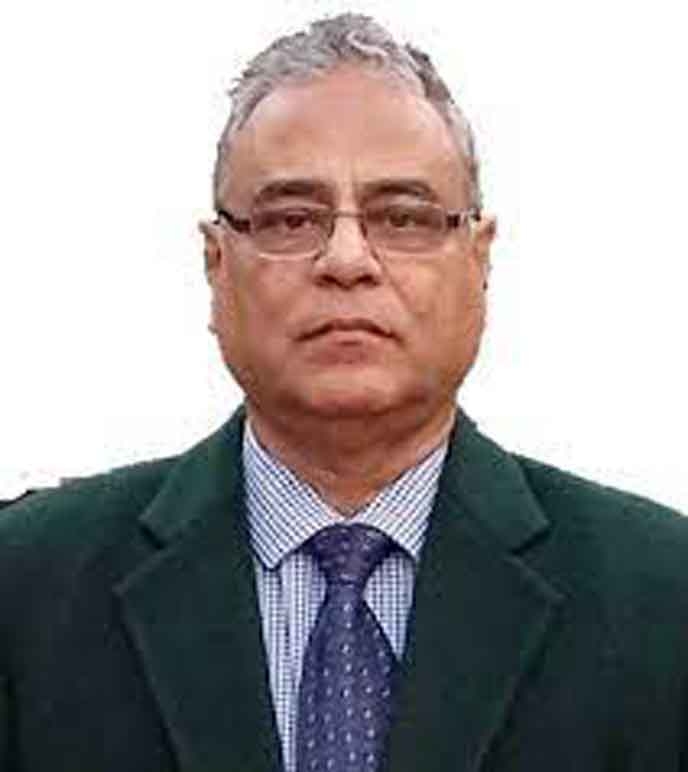
Dr. Syed Nesar Ahmad Rumy :
Why do we use English in our education and correspondences? Maybe many of us do not know the answer precisely. But there are many countries in the world who have not taken English in their mode of correspondence and in education. They are educated nations having qualified professionals, scientists, doctors, engineers etc. Are they facing any problem not taken English as their medium of instruction? Most probably the answer is no. In the present world they pass their lives without using English. But the case of ours is materially different as we are inheriting a legacy of about two hundred years Brithish colonial rule.
Before the colonial era Persian was the language of official correspondence in this subcontinent. The colonial masters introduced English as the official language replacing Persian since thirties of 1830. But the influence and impact of Persian language is still vivid in our society and national life. We see many Persian words are incorporated in our language and a lot of Persian terms and words are being used in our daily life and as well as in the offices. The terms Nazir, Adalot, Munshikhana, Sheresta or Sherestadar, Dewan or Dewani are used presently in our courts. Definitely all these are the legacies of Persian language we were used to about two centuries back.
During colonial era the question of using English did not come to the forefront. All quarters of pressure groups accepted English generally as the medium of instruction. But a powerful Muslim quarter of pressure group did not accept English initially as they thought the colonial masters snatched state the power from Muslims and history says to some extent this notion is true. Maybe, for this reasons the Muslims of the then British India kept them lagging behind of Hindus, the biggest community in the then time. As a result of this consequence, a generation gap happened regarding English learning among the Muslims of India, the second biggest community. So over the years, after introducing English, many schools, colleges, universities were established and the mode of instruction was English in those institutions. Upper class Hindus took the full advantages of learning English since the then time. As a result of this they did go far ahead of Muslim community in all the sectors of national and state life of the then India. After establishing Aligarh University Muslim community came to a realisation that English is necessary to keep them parallel to other big communities at national level. In this regard Sir Syed Ahmed, Amir Ali, Nawab Abdul Latif had a big contribution of English learning among the Muslims in the then India. Annulment of Bengal partition and establishment of Dhaka University had a big significance among the Muslims of this part of this subcontinent. In fact Muslims in this area got confidence and thought that they would be an important pressure group to their colonial masters.
After Bengal partition in 1947 most of the educated Hindus of the then East Bengal migrated to Kolkata and settled there. So at the initial stage after partition in 1947 there was severe shortages of English and Math teachers in the then East Bengal as most of the teachers of different institutions were from the Hindu community who left the country and settled in Kolkata and its surroundings. After the creation of Pakistan, as a legacy English was the dominating factor in all sphere of national and state level. But after the independence of Bangladesh, learning English got less priority in practice and emotion upon Bengali language overruled the practicality of necessities of English learning in our national and state level. And it got worse by a political decision of General Ershad in the mid-eighties withdrawing English use in government and semi-government work. Actually this decision was not well-thought and he could not realize the long term impact on the education sector in Bangladesh. Now it is clear he did it only to get cheap political support from the people for his martial-law government. Since that time English is being taught without any legal basis or backup. But in reality without English we are totally failure in our national and in international level.
In reality we see that candidates well-versed in English have better chances than others to make career in public and private sectors irrespectively. In this consequence we need to learn English seriously along with Bangla so that our youths can compete in every sector in national and international level. Now it is the time we should change our mind-set. We should not take English only for a language, rather we should take it as an important technology.
In the Section of 153 of the Constitution of Bangladesh it is mentioned that this Constitution has two authentic texts in Bengali and English but provided that in the event of conflict between the Bengali and English text, the Bengali text shall prevail. It is understood that the spirit of the Constitution is not to ignore the necessity of English but to uphold the importance of English in our national life. The framers of the Constitution had to understand the importance of English in the initial years after our independence. So in line with the sprit our constitution it is now demand of the time that an Act should be passed in the Parliament regarding use and practice of English in our state and national level along with Bengali, our state language. As a result of this initiative a legal backup of using English will be created and in the long run it will help us in all the sectors in national and international level. And learning English will get a legal basis in our country. The policymakers and high-ups of our country should seriously think of this matter.
(Dr. Rumy is a former civil servant and freelancer).

